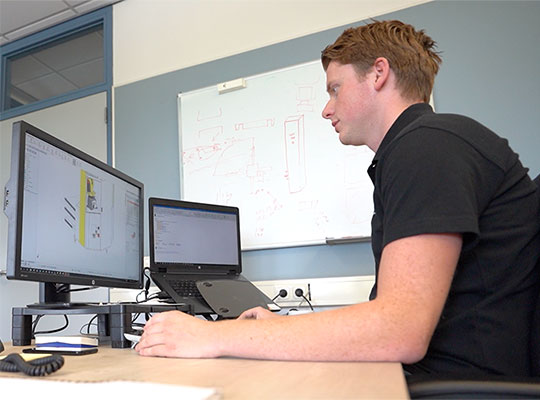Pallet handling

Preparing several pallets of raw material allows unmanned production for a short time. Pallet automation also has limitations.
- Manual clamping of products is time-consuming for the operator.
- For products that require machining on six sides, the operator must re-tension the product.
- Do you want to produce unmanned pallets for longer? Then more expensive clamping equipment and storage capacities are needed.
Product handling for CNC milling machines
Robot automation allows several manual machining processes at CNC milling machines to be automated:

- Raw material input by pallet handling and/or product handling
- Clamping of raw material
- Changing grippers, clamps and tools
- Turning over and clamping products for subsequent processing
- Export and storage of finished products
In practice, Cellro sees that raw parts can be automated with product handling. Parts up to 20kg with standard universal Cellro grippers. Products weighing more than 20kg are mostly handled with product specific grippers. For products suitable for product handling, product handling has several advantages when compared to pallet handling.
Significant time savings
Milling often involves multiple operations. This means that the product must be turned over one or more times.
Constant manual fixturing for OP20 is labour-intensive for operators. A turning station or R-C2 | 6S allows fully automated machining of products on six sides.
High accuracy
The robot gripper can travel and re-pick raw parts from a centring station. This eliminates dependence on drawer positions. All raw parts are picked up from the same position. This improves process accuracy.
Another option is R-C2 | 6S. With this, raw material is clamped by an R-C2 head with the right pallet clamp. In the 6S takeover station, a second R-C2 head takes over the product for OP20 processing. Accuracy is maintained as the product is never released.

Pallet and product handling
If you combine product handling with pallet handling in one robot cell, this hybrid robot system offers optimum flexibility. This allows you to create different production jobs. One product enters the machine through product handling and the other through pallet handling. This makes it possible to combine small series with even smaller series.

